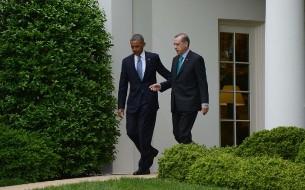Washington Struggles with Turkey’s Troubles
By Richard Weitz (vo. 7, no. 4 of the Turkey Analyst)
The severe domestic problems of Prime Minister Recep Tayyip Erdoğan are placing a major burden on Turkey-U.S. relations. His authoritarian tendencies and proclivity to blame everyone, including the United States, for his challenges has made it increasingly difficult for the Barack Obama administration to keep silent about his democratic and human rights setbacks. These challenges will likely only increase in coming months.
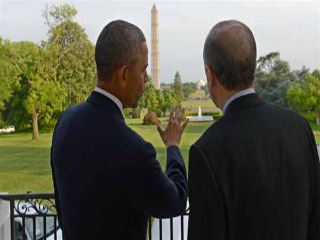
Trade can be an Ice-Breaker in Turkish-Israeli Relations
By John Daly (vol. 6, no. 23 of the Turkey Analyst)
While the Islamist ideology of Turkey’s ruling party makes it unlikely that the relations between Turkey and Israel can be restored in a way that fulfills the expectations of the United States, there are also some signs that suggest that something of a working relation between Jerusalem and Ankara, based on mutual economic interests, can still be established. Trade can potentially serve as an ice-breaker between the two nations.
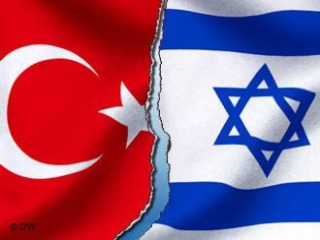
United against the West? Erdogan and the Turkish generals
By Halil M. Karaveli (vol. 6, no. 19 of the Turkey Analyst)
The Turkish decision to choose a Chinese anti-missile system demonstrates Turkey’s ambition to forge an independent defense identity. It is another indication that the ruling Islamic conservatives do not feel indebted to the United States. But the decision is also a reminder that the Turkish generals no longer do America’s bidding. Western policymakers who are angered by the Turkish decision to go Chinese in missile defense would do well to ask if the assumptions that have guided their policies toward Turkey during the last decade may have been flawed.
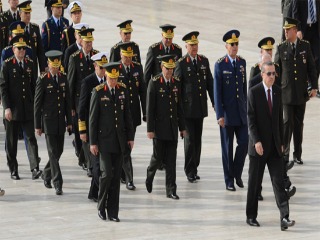
Turkey Protests Rattle Washington
by Richard Weitz (vol. 6, no. 12 of the Turkey Analyst)
Since the dispersal of the first protest at Taksim’s Gezi Park towards the end of May 2013, numerous anti-government protests have erupted throughout Turkey, against what it is seen as the insensitive and authoritarian policies of Prime Minister Recep Tayyip Erdoğan. Torn between competing goals, the Obama administration has reacted very cautiously to the protests. U.S. officials have criticized the Turkish police for overzealous use of force, but have not taken issue with Erdoğan personally. This approach has the advantage of not antagonizing the Erdoğan government, which is seen as a strong regional security ally in Washington, especially regarding Syria and Iran. But this familiar approach - repeating the past pattern in bilateral relations, with the U.S. downplaying Turkish human rights and democracy concerns -- risks weakening the popular foundations of the alliance, which in turn constrain the partnership’s future potential.
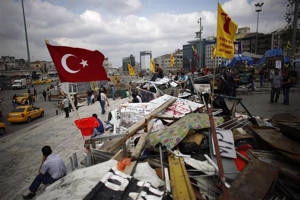
Erdogan-Obama Differences over Syria Downplayed at Washington Summit
by Richard Weitz (vol. 6, no. 10 of the Turkey Analyst)
At their joint White House news conference, Turkish Prime Minister Recep Tayyip Erdoğan and President Barack Obama stressed their common desire to avert the use of chemical weapons in Syria, end the fighting through a peaceful transition to a post-Assad government, and prevent Syria from becoming a terrorist haven or the emergence of an autonomous Kurdish or threat to Syria’s territorial integrity. Yet, neither Turkey nor the United States is prepared to make substantial exertions to achieve these objectives, making it more likely that the Syrian civil war will continue to threaten regional stability, their relationship, and their other interests. Although analogies are never perfect, the Syrian situation resembles several similarly bad situations of recent years, with extremely negative implications for Ankara and Washington.
